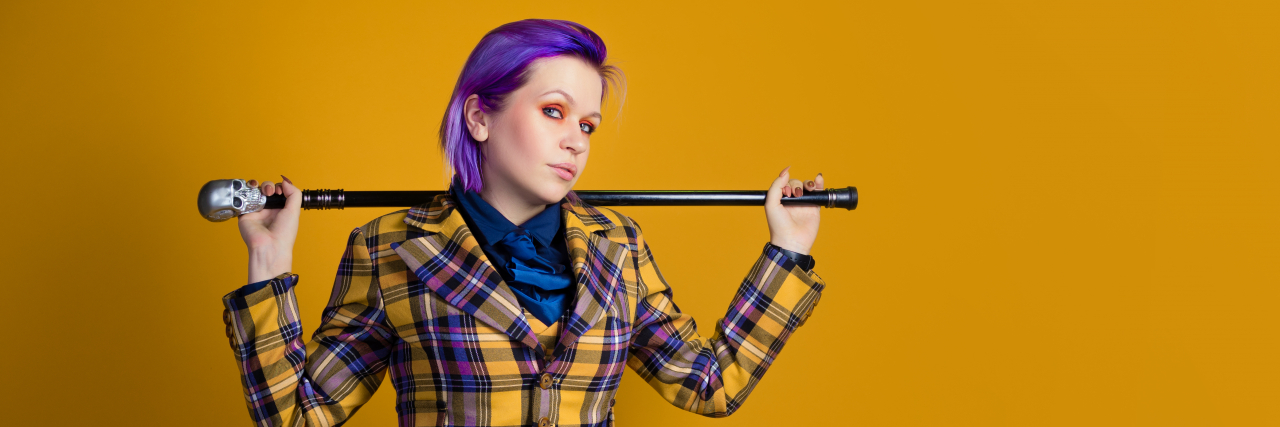I’ve been diagnosed with a disability for almost 10 years now, but at first I didn’t consider myself disabled because my limitations at the time were minute and relatively inconsequential. I continued living my life presenting entirely as an abled person, not even bothering to tell those closest to me about my new diagnosis. Sure, I couldn’t open jars or hold a pencil quite the right way, and I did attend occupational therapy, but overall I felt as though this was a minor setback, something I could easily bounce back from.
• What is Ehlers-Danlos Syndrome?
• What Are Common Ehlers-Danlos Syndrome Symptoms?
That changed one day when suddenly I could not walk.
I was confused. I went from being able to walk on Monday, taking shifts as a lifeguard at a local university — swimming thousands of meters a day — to struggling to walk 10 feet from my car. Surely, I told myself, this is temporary, and I will go back to being able-bodied.
What little relief did come didn’t come soon enough. In a week I was able to walk more than a couple of feet again. In a month I was able to keep up with my daily activities.
Yet, I was never able to swim the same again. I never “went back” to an able body.
I didn’t even need a wheelchair, and when I did use one it was only for special occasions that could involve lots of walking, like when I was in the airport or at Disney World. I could walk through the grocery store, leaning on a shopping cart for support. I could go to work as a teacher, sitting on tables instead of standing to teach. I had entered the world of able-passing, caught in what I felt was an in-between of physically abled and disabled. I didn’t “fit” into either category.
For a while, I was wrestling with my internalized ableism. It then took me three years to embrace and feel confident in calling myself disabled. It took me almost all 10 years to realize that my limitations on viewing myself as disabled were the result of viewing the world as binary.
You were abled or disabled. You were gay or straight. You were male or female. While the world grappled with the latter two, I was beginning to see how little the binary view of the world applied to ability, and how shattering the binary would be liberating.
Sexuality was being presented as a spectrum, allowing me to name my own bisexuality, which was something I had been hesitant to face. I asked myself, “Why didn’t I fit into this binary?” Gender was proving to be a spectrum, too, as non-binary individuals began to become more comfortable sharing their stories with the world. I was struck by the fact that no matter where on the spectrum anyone landed, their identity was just as valid as any other location on that spectrum.
I was able to tell myself that just as being anywhere on the sexuality spectrum or gender spectrum was absolutely valid and affirming, so too was my varying ability. Just as it’s OK for a person to present female one day and present male the next, it is OK to need a mobility aid one day but not the next. That doesn’t make my identity any less valid. And yes, in sexuality and gender identity there were words for other spaces on the spectrum, but just because there wasn’t a word that fit my ability, that didn’t make my identity any less valid.
I am disabled, whether I walk, roll, crutch, or cane.
This has allowed me to love myself more and more. I do have days when my body is in opposition, and that may never go away, but I no longer have to see my body as the enemy all the time (even when I’m struggling) because that’s not binary either. There are not only “good days” and “bad days” — there are just days, and moments that slowly define our future. I’m hoping for as many happy moments as possible as I continue to push the limits of my worldview.
Getty image by Chris Cole.

